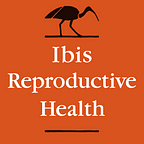Repeal Hyde — Make abortion care accessible to all
By Terri-Ann Thompson, Ph.D.
In 2007, Ibis Reproductive Health began documenting the impact of the Hyde Amendment on those seeking and those providing abortion care in the United States. For 44 years, the Hyde Amendment, a policy that prohibits federal funding for Medicaid coverage of abortion care except when an individual is pregnant as a result of rape, incest, or when the pregnancy endangers their life, has been renewed annually as part of the federal appropriations process. Today, amidst one of the must tumultuous years in United States history, 16 states use their own funds to cover abortions in most cases, while 34 states and the District of Columbia fund abortion only in cases prescribed by the Hyde Amendment.
The global pandemic has made it extremely difficult for people around the world to access health care. In response, the US government has implemented a number of provisions to reduce barriers to accessing medical care. However, nothing has been done at a federal level to ensure access to abortion, an essential reproductive health care service that is already severely restricted by the Hyde Amendment.
Ibis began our foundational Hyde work with interviews across 15 states with 98 low-income women who had abortions and close to 70 abortion providers. The majority of these states enforced the Hyde Amendment. Interviews with women seeking care brought into sharp focus the emotional harms and financial burdens they and the people in their lives face as they work to gather the necessary funds for their wanted abortion. The picture painted was one of hardship, with women having to borrow from family and friends, forgo necessities such as groceries, and delay paying rent or utilities in order to cover the cost of their abortion service.
From our interviews with abortion providers, we learned that many of their patients were unable to obtain Medicaid coverage, even when eligible. Requirements imposed for Medicaid coverage, such as a documentation of rape or incest, such as a police report, were cited as burdensome and traumatizing for patients. Furthermore, the many bureaucratic processes associated with reimbursement for Medicaid-eligible abortion care often impeded timely and consistent coverage to individuals who were legally entitled to it. These bureaucratic processes, in concert with low reimbursement rates, significant staff time required to submit claims, and an overwhelming number of claims that are denied, work together to disincentivize some providers from accepting Medicaid for any services.
In 2018, we launched a qualitative study to understand what, if anything, had changed in the ten years since we began our seminal work to understand the impact of the Hyde Amendment. Interviews with providers in Tennessee, a state that restricts public insurance coverage for abortion under the Hyde Amendment, revealed the answer: Not Much. In this newly released research brief, we report that clinics continue to absorb the cost of procedures that should be eligible under Medicaid and that bureaucratic processes, delays in reimbursement, low reimbursement rates, and frequently denied claims continue to deter clinics from accepting public insurance for abortion care. Closer inspection of the Medicaid reimbursement rates under a fee-for-service model found that the rates are indeed low. On average, Medicaid reimbursement rates for a first- and second-trimester abortion covered less than 50% of patient costs for these abortions.
The findings from our research send a clear message: low-income people, their families, and providers are assuming financial responsibility for abortion procedures that by law the federal government should already cover. What’s more, any restrictions on abortion coverage cause harm. During a time when physical access to abortion providers has been effectively restricted by the Coronavirus pandemic, pre-existing access issues are brought into sharp relief. People struggling to make ends meet — who may now be faced with the additional burden of job loss or reduced wages — need full access to their health coverage. Restricting Medicaid coverage of abortion forces one in four low-income women to carry an unwanted pregnancy to term and sets in motion factors that diminish their and their children’s economic wellbeing and development.
We believe a decade’s worth of data calling out the harmful impact of the Hyde Amendment is more than enough. Therefore, we join our colleagues this month in reimagining a future where each of us can get insurance coverage for the full range of health care, including birth control, abortion, and childbirth. #BoldAFUnitedAF #BeBoldEndHyde #RepealHyde
